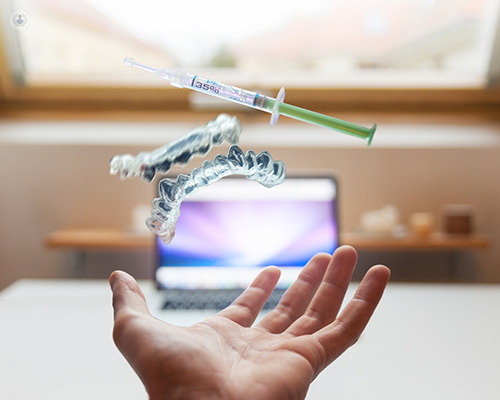Dental phobia: how to break the fear
Written by:It is estimated that up to one in five people suffer from dental fear or dental phobia. No-one knows how many seek help as figures have never been collected. Dr Sue Peacock’s experience as a qualified psychologist tells her it is a common issue. The expert explains how dental fear can be overcome in this intriguing article.

How can we break down the fear experienced in dental phobia?
One of the characteristics of fear is that it presents as an uncontrollable, indefinable, incoherent cloud. It can often help clients if we break down the fear into the following distinct areas:
1. Fear of pain
Of course, we all try to avoid pain, it is part of our primitive defence mechanisms. But for some people, the fear is paralysing.
Sometimes a good first step is to find out where this fear comes from. This can stem from a bad previous experience, especially from childhood. In childhood, we all lack power and if we have a bad experience at the dentist, we can process this into several unhelpful beliefs. Powerful adults are hurting you and you cannot stop them. Your parent, who is supposed to protect you, is betraying you by doing nothing.
One established hypnotherapeutic technique is to take a client back along their own memory timeline and let them look at their unfortunate experience from their wiser adult point of view. This can help take the emotional sting out of the memories and decouple these memories from fear of the pain.
2. Fear of injections
This is a very common phobia, and of course, many dental appointments involve an anaesthetic injection. I often use a technique from neuro-linguistic programming called the fast phobia cure here. I ask the client to imagine a cinema and to take a seat in the front row. I encourage them to relax and to then see themselves on the screen happy and relaxed. Then I ask them to see themselves having an injection then being happy and free afterwards.
I then get them to run this film, again and again, using sounds and colour in special ways until their fear lessens to a level where they can cope. The technique works by divorcing emotion from events and imaginings. We then hold the thing which was causing the fear differently in our thought patterns and can cope with it.
3. Loss of personal space
Another emotion which can cause fear and even panic is the feeling of being overwhelmed by the close physical presence of someone you do not know or want near you (in this case the dentist). This can sometimes be caused by unpleasant or traumatic previous experiences, such as sexual harassment or assault. In this case, we can use hypnosis to disassociate these memories with the dentist experience. This can break the link and then the fear is lessened.
4. Getting the dentist involved
After implementing some of the techniques I have described when a patient comes to me for help for dental fear or phobia, I do favour something else as well, and that is getting dentists involved.
What’s your approach in treating dental fear?
I prefer to use a two-stage approach. My approach works like this. I like to see a client in my own clinic several days or weeks before they have the appointment. I will work with the client to find the roots of their fears as I describe above and work to change how they hold the memories and emotions which are causing the fears.
With the client’s grown-up wisdom, and in a safe and supported environment, it is possible to detoxify those memories. And if we can do that the dental fear will be lessened. That is the core of my approach. I also offer some practical tips and techniques which the client can use on the day of the appointment.
The second part to my approach is to get involved with the dentist and their staff and teach these professionals some simple hypnotic techniques, which they can use while the patient is in the chair.
What are practical tips for a nervous person on the day of their dentist appointment?
On the day of an appointment, I recommend that the patient uses the following techniques:
- Positive visualisation - under hypnosis, I show the client how they can explore what being at the dentist, pain-free and relaxed, can feel like. I then use a technique, called anchoring, which enables the client to recall their positive feelings in the real situation.
- Deep-breathing for relaxation - I teach the client to breathe slowly and deeply, using all their abdominal muscles. This creates a physiological reaction which sends messages to the brain saying ‘relax, it’s all okay.’ With a little practice, the client can do this even in difficult situations, such as the dentist.
If you experience dental fear or phobia, arrange an appointment via Dr Peacock's Top Doctor's profile.


